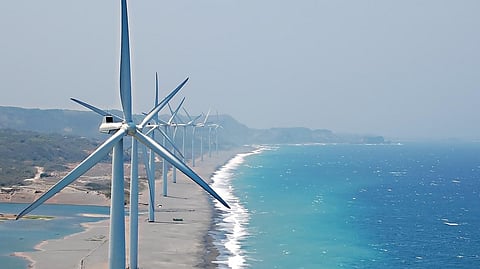
- NEWS
- the EDIT
- COMMENTARY
- BUSINESS
- LIFE
- SHOW
- ACTION
- GLOBAL GOALS
- SNAPS
- DYARYO TIRADA
- MORE

A newly launched guidebook by the Department of Energy (DOE), in partnership with the Southeast Asia Energy Transition Partnership (ETP), is expected to help streamline the permitting process for offshore wind projects and boost investment in the sector.
Titled “Compendium: Guidebook to Permitting and Consenting for Offshore Wind Energy in the Philippines,” the publication outlines over 80 required permits across more than 25 government agencies. It covers the full project cycle from early site assessments to construction, operation, and decommissioning.
With an offshore wind potential estimated at over 178 gigawatts (GW), and 92 service contracts already awarded representing more than 65 GW, Energy OIC Sharon S. Garin said on Monday that the guidebook would help reduce regulatory barriers.
“This guidebook is a game-changer. It transforms a complicated process into one that is streamlined, more transparent, and easier to follow for both government and investors,” Garin said.
The compendium was developed after a year of consultations with agencies, local governments, and industry experts, with technical support from international consultancy NIRAS to ensure alignment with global best practices.
It also includes guidance on marine spatial planning, environmental assessments, community consultations, and obtaining permits such as Environmental Compliance Certificates and Free, Prior, and Informed Consent.
The initiative supports Executive Order No. 21, signed by President Ferdinand Marcos Jr. in 2023, which calls for a unified permitting system for offshore wind. It also integrates with the DOE’s Energy Virtual One-Stop Shop, a digital platform for consolidating energy permits.
The DOE aims to position offshore wind development as a key driver in meeting its renewable energy targets of 35 percent by 2030 and 50 percent by 2040.
“We fast-track processes, but never at the expense of environmental and community safeguards. The compendium ensures that good governance and clean energy go hand-in-hand,” Energy Undersecretary Rowena Cristina Guevara said.
